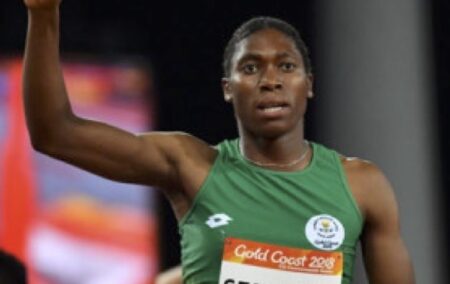The case of Caster Semenya raises many very difficult questions and has one very simple resolution.
Caster is a world champion athlete from South Africa whom the International Association of Athletics Federations (IAAF) has ordered to take drugs to make her run slower. They say she has an unfair advantage over other women because of her high levels of testosterone, a hormone which men have in higher concentrations than women.
She was born in Limpopo in 1991. Because of a genetic abnormality, she has no womb or ovaries and different hormone levels from most women. She is married to a woman. She is of masculine appearance, very muscular, and she runs very fast, especially in the 800 metres, where she has an Olympic Gold Medal. As soon as she started winning, she attracted controversy and criticism, some of it of a cruel and jealous nature. Eventually the IAAF demanded her to submit to a medical examination to test whether she was a man or a woman. It found she was a woman. Still, the criticism remained about her having an unfair advantage over other women. And now this horrible decree from the IAAF that she must take medication to reduce her testosterone to make her run slower. Throughout these humiliating ordeals, Caster Semenya has conducted herself with courage and dignity.
Sexual reproduction, the swapping of genes between two individuals, began about 1.2 billion years ago. There are only two sexes, but within each there is a wide range of characteristics. Some men are effeminate, some women are quite masculine. At school, as little children, we all saw this among our fellow pupils. Sometimes we accepted it naturally, as is the wont of children; and sometimes we were cruel about it, as is also the wont of children. Down the ages, it seems most adults accepted differences in sexual appearance and behaviour without concern. We have only in recent centuries become bigoted about it. (Very recently, in a fit of priggishness, we changed “sex” to “gender”, previously a grammatical term.) Perhaps the aggressive LGBTI movement is a reaction against this.
The worst example I can think of, which in some ways foreshadows the IAAF’s ruling on Caster, was the case of Alan Turing. He was a mathematical genius, born in London in 1912. During WW2, he worked in Britain’s codebreaking centre at Bletchley Park. The Germans had a cypher machine called Enigma, whose codes they thought were impenetrable. I’d have agreed with the Germans that it was impossible to break their codes. Turing broke them. Before vital battles, the British were reading the German military orders at the same time as the German generals. They passed them to their allies, especially the Russians, who used them to help win those massive, terrible tank battles. Turing saved thousands of lives. He was a gentle, rather shy young man. (A friend met him on several occasions and liked him). He was homosexual and persecuted because of it and denied promotion. This was during a war where senior German officers flaunted their homosexuality quite openly and Churchill made good natured, rather affectionate jokes about it. In 1952, Turing was prosecuted for homosexual acts and ordered to castrate himself chemically. He committed suicide.
Men are physically stronger and faster than women, even when they are the same size. In every sport, with the interesting exception of long-distance swimming, men will beat women. (Natalie du Toit, with one leg, beat all the men in the swim from Robben Island to the mainland.) Testosterone, which builds up muscle strength, is said to be a prime reason. But strangely enough this doesn’t seem to be the case in other animals, as far as I can see. A female cat is a match for a male cat of the same size. Mares and geldings can often beat stallions in horse races. I wonder why humans are different.
But they are, and so men and women must compete separately in sporting events. There must be some test for womanhood, or else any man could claim he was a woman and enter the women’s events. There is such a test, Caster passed it, and so she must be allowed to enter any woman’s event. That is the simple resolution of the matter. Anything else is nonsense. The IAAF ruling is vile and stupid, with horrible echoes of that against Alan Turing.
Has she got an advantage over other women? Of course! Every champion athlete has an advantage over others, or she/he would not be a champion. Muhammad Ali was faster than any other heavyweight alive. Every Olympic Gold Medallist is by definition abnormal. I doubt very much if other women would choose to be born like Caster. So, for heaven’s sake, allow her to celebrate her supreme talent.
The United Nations Human Rights Council says the IAAF ruling against Caster is “unnecessary, humiliating and harmful”. For once I agree with the UN.
Andrew Kenny is a writer, engineer and classical liberal.
The views of the writer are not necessarily the views of the IRR.
If you like what you have just read become a Friend of the IRR if you aren’t already one by SMSing your name to 32823 or clicking here. Each SMS costs R1.’ Terms & Conditions Apply.

